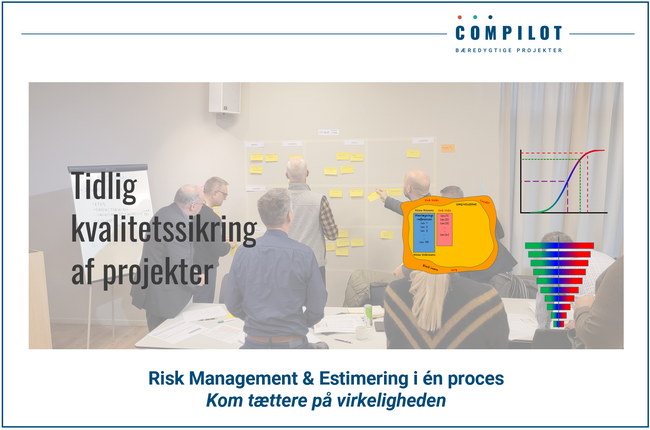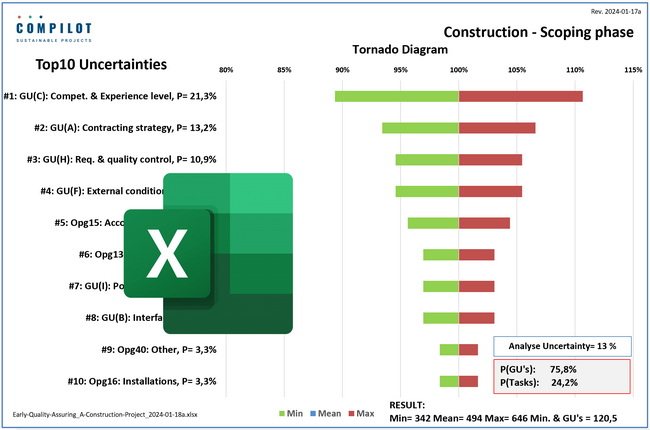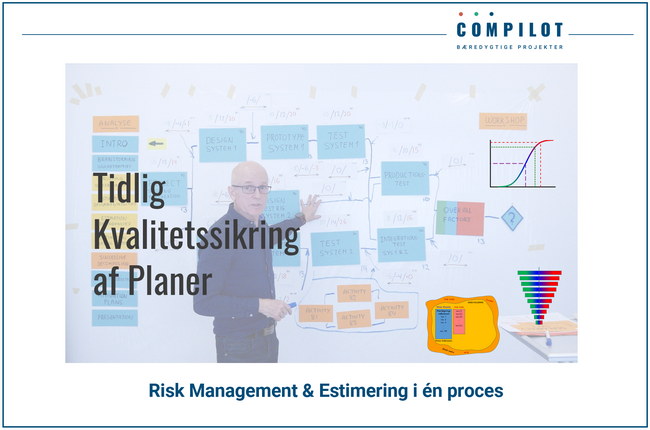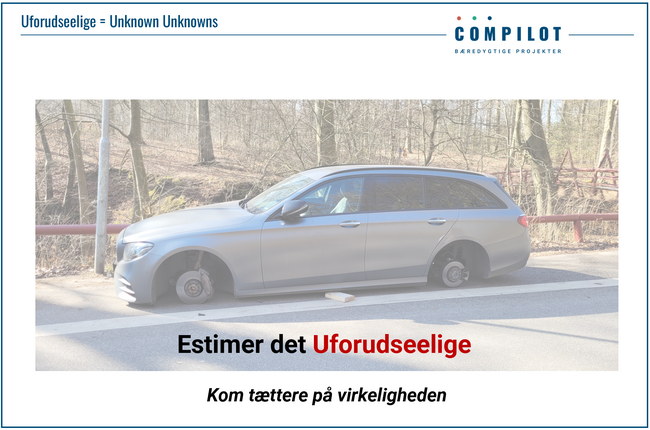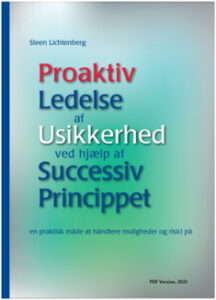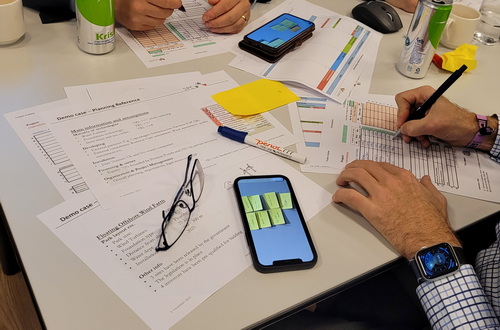PROJECT MANAGEMENT
EDUCATION & TRAINING
EDUCATION & TRAINING
VISUAL & PRACTICAL
EFFECTIVE THEORY & PRACTICE
Get an experienced coach
Become effective in project management and create success
TRAINING & WEBINARS
QUALITY ASSURANCE OF PROJECTS.
Here we explain how to achieve resilient projects by:
- Apply effective risk management methods and processes
- Using one of the world’s (probably) best methods that combines risk management and estimation in one process
The methods can be used in all project types, e.g. building and construction, HW/SW development, IT, outsourcing, product development, tenders, business cases, etc.
Below you can download appetizers for the materials we use for training and webinars.
We also develop customized courses and materials.
EARLY QUALITY ASSURANCE
Introduction to quality assurance with the Successive Principle.
Here you can download handouts for the slides we use in the training/webinar (customizations may occur).
The Successive Principle is a project management methodology that results in Robust Plans and Budgets through early quality assurance of the project, program or portfolio.
The method has been successful in thousands of projects in Scandinavia and Europe.

BUILDING & CONSTRUCTION PROJECTS
Estimation of Building & Construction Projects
Here you can download handouts for the slides we use in the training/webinar (customizations may apply).
Here you can read about e.g. ‘New definition of UFs’ (Unforeseen), Contingency reserves, Consultant’s budgeting, Estimation of UFs (Incl. Unknown Unknowns), Multiple critical paths in the project plan, etc.
UNKNOWN UNKNOWNS
Estimation of Unknown Unknowns
Here you can download handouts for the slides we use in the training/webinar (customizations may apply).
In construction projects, for example, we talk about UFers:
- The unforeseen costs, Unknown Knowns (What you forgot to include)
- The unforeseeable costs, Unknown Unknowns (What you don’t know you don’t know)
In the webinar, you’ll learn how to estimate these types of costs.
Benefits:
- Greater robustness in budgets and plans
- Nature awareness Unk Unks in projects
- Reduction of Unk Unks because you consciously search for them
IT PROJECTS
Estimating IT Projects
Here you can download handouts for the slides we use in the training/webinar (customizations may apply). First, we provide an introduction to the Successive Principle, which is the basis for ensuring robust budgets and plans.
For IT projects, it can be crucial that the project gets off to a good start.
We do this by, for example:
- To quality assure the foundation
- Identifying the Top 10 uncertainties
- Creating a robust budget and plan
- Combining the Successive method with agile methods
In the webinar, you can learn how to estimate IT projects.
EDUCATION
FACILITATOR TRAINING
We train employees to become facilitators specializing in conducting Successive Workshops with different types of analysis.
Training includes e.g:
- Introduction to the underlying theory
- Training on the pitfalls to avoid
- Training via own projects or cases
Requirements for the participant are e.g:
- The person is used to facilitating workgroups
- That the person is curious about their own way of acting in a group process
- That the person works with positive feedback
- That the person is open-minded and curious about how a process is carried out
The training can be conducted in Danish, English or ‘Scandinavian’.
Benefits:
- Ensure your business has clear budgets and plans – that stick
- The company increases its project efficiency and competitiveness
- That the company at least stabilizes or better increases its EBIT
- The company can more easily recruit qualified employees
- The company experiences less stress in projects and among employees

